Search
Search Results
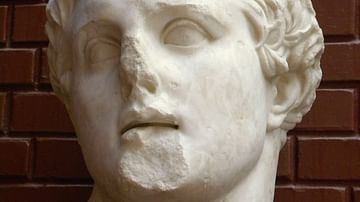
Definition
Lysimachus
Lysimachus (c. 361-281 BCE) was one of Alexander the Great's trusted bodyguards and a member of his Companion Cavalry. Although he obtained Macedonian citizenship, his father was a Thessalian named Agathocles. After Alexander's death in...
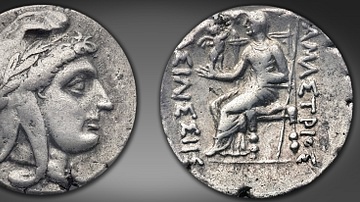
Definition
Amastris
Amastris (c. 340/39-285 BCE) was a niece of the Persian king Darius III (r. 336-330 BCE) through her father Oxyathres. She was married in succession to Alexander's general Craterus, the tyrant Dionysius of Heraclea, and finally to Lysimachus...
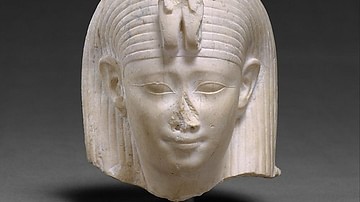
Definition
Arsinoe II Philadelphus
Arsinoe II (l. c. 318/311 - c. 270/268 BCE), daughter of Ptolemy I became one of the most enduring figures of the Lagid or Ptolemaic Dynasty and left an undeniable mark in the historical evidence. She was married three times; first to Alexander...
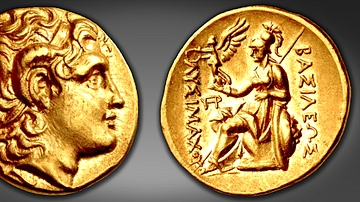
Image
Coin of Lysimachus
The obverse of this gold coin (stater), minted under the authority of King Lysimachus of Thrace (r. 305-281 BCE), shows the deified portrait of Alexander the Great, wearing the royal fillet (diadema) with the ram's horn of Ammon; the reverse...

Image
Lysimachus
Head of Lysimachus (?). Early Hellenistic, ca. 300 BC. Museum of Ephesus, Turkey.
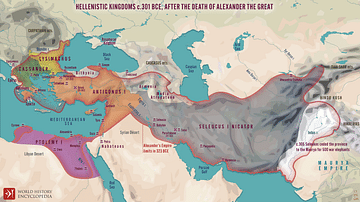
Definition
Wars of the Diadochi
On June 10, 323 BCE Alexander the Great died in Babylon. Although historians have debated the exact cause most agree that the empire he built was left without adequate leadership for there was no clear successor or heir. The military commanders...
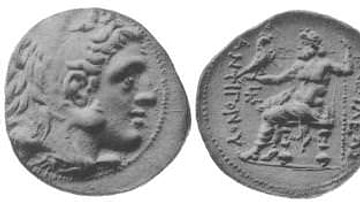
Definition
Antigonus I
Antigonus I Monophthalmus ("the One-Eyed") (382 -301 BCE) was one of the successor kings to Alexander the Great, controlling Macedonia and Greece. When Alexander the Great died in 323 BCE, a conflict known as the Wars of the Diadochi ensued...
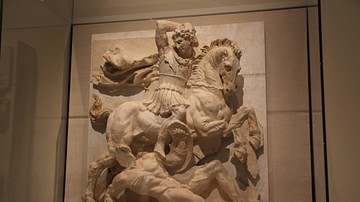
Definition
Hellenistic Warfare
When Alexander the Great died in 323 BCE, he left behind an empire devoid of leadership. Without a named successor or heir, the old commanders simply divided the kingdom among themselves. For the next three decades, they fought a lengthy...

Definition
Demetrius I of Macedon
Demetrius I of Macedon, also known as Demetrios Poliorcetes, the 'Besieger' (c. 336 - c. 282 BCE), was a Macedonian king who, along with his father Antigonus I, fought for control of Alexander the Great's empire in the 'Successor Wars'. After...
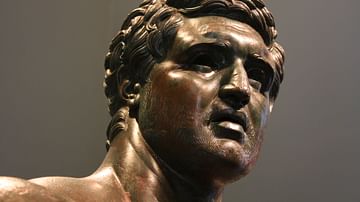
Definition
Attalid Dynasty
The Attalid Dynasty ruled an empire from their capital at Pergamon during the 3rd and 2nd centuries BCE. Fighting for their place in the turbulent world following the death of Alexander the Great, the Attalids briefly flourished with Pergamon...